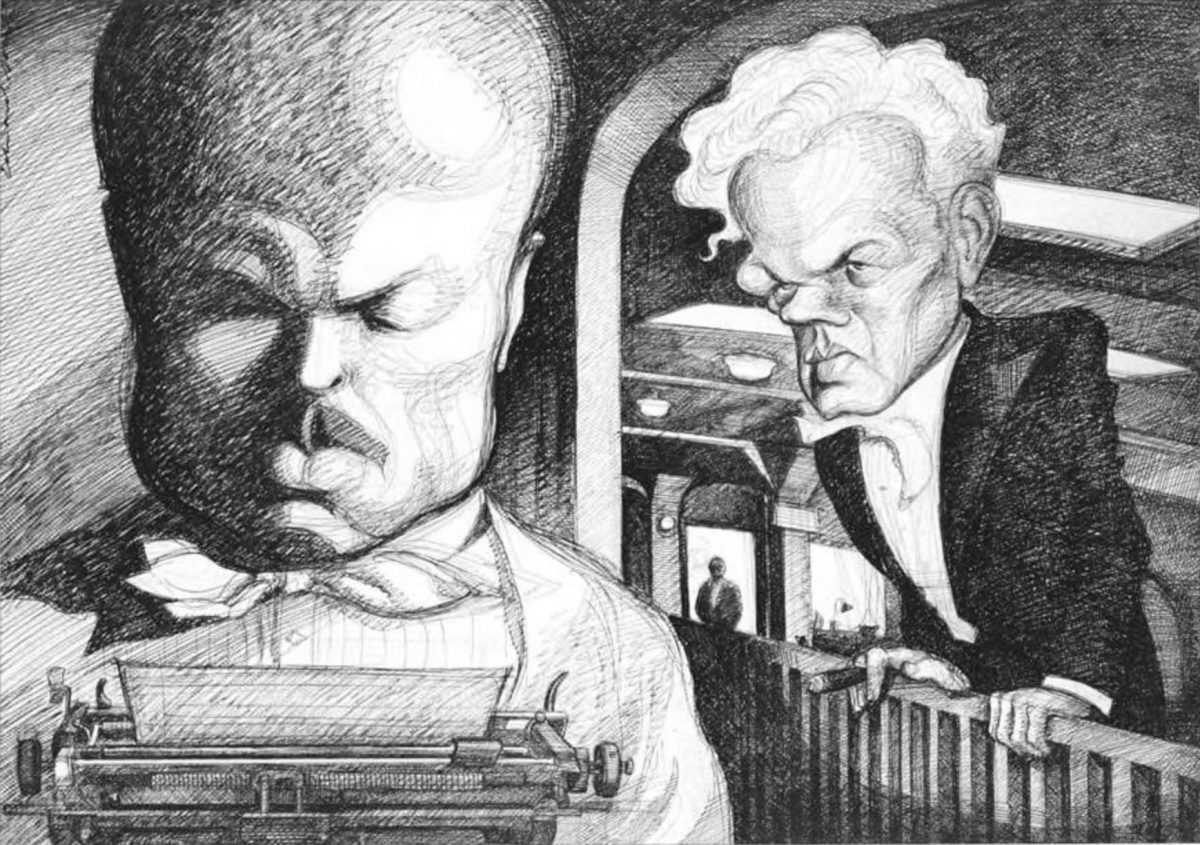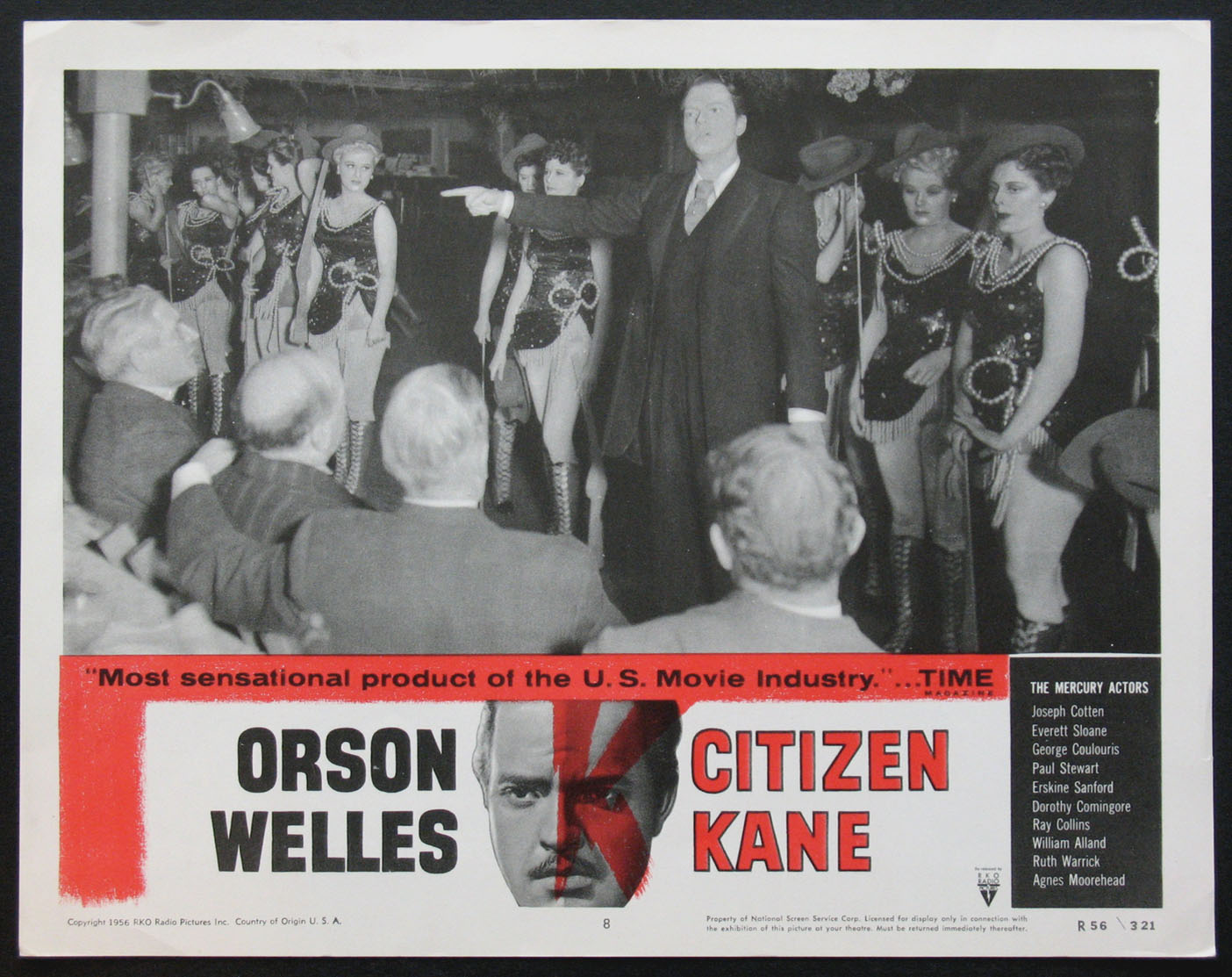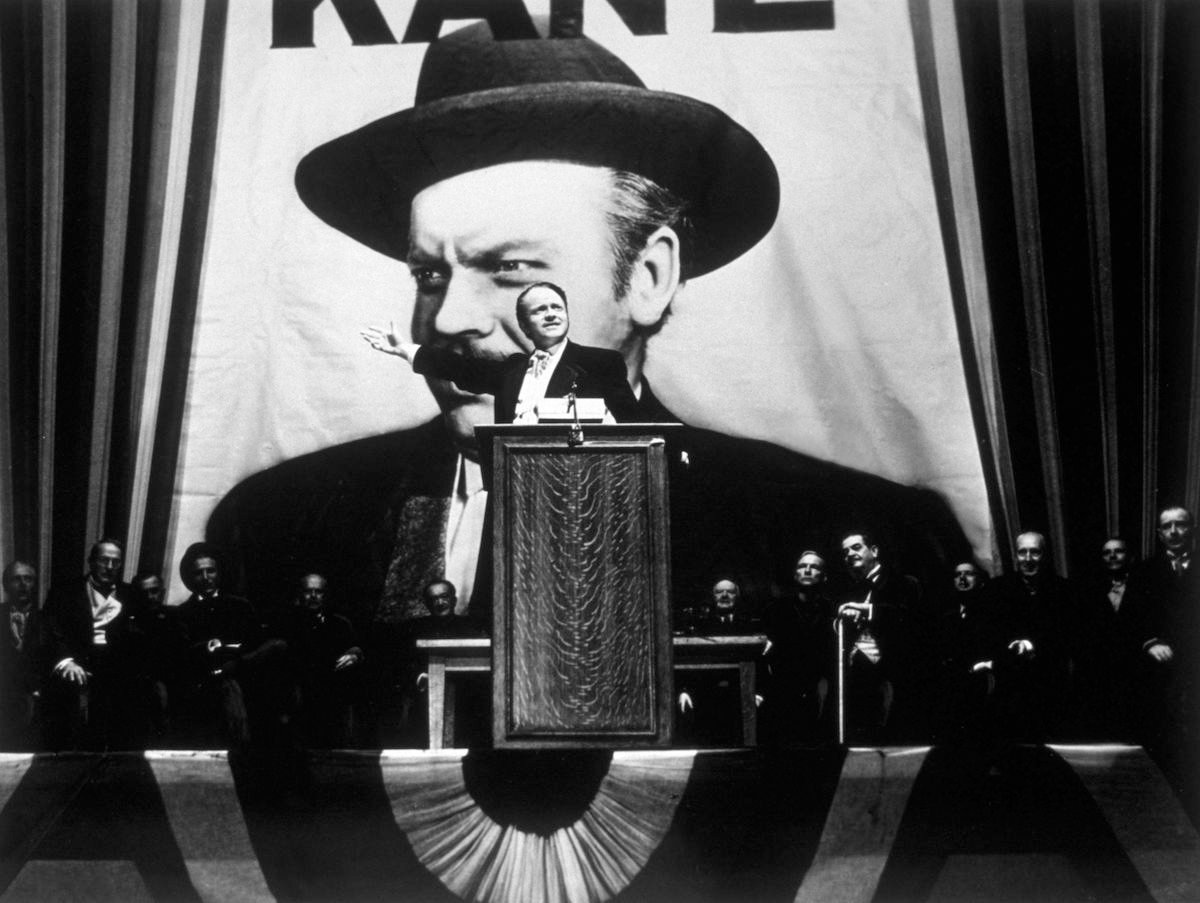by Edward Sorel
It’s the 1941 movie that tops everybody’s “ten best” list… the movie that has inspired more criticism and more controversy than any other . . . the movie that provoked lawsuits, attempts at suppression, and the rupture of long-standing friendships. It’s the movie that Orson Welles, then twenty-five, produced, directed, coauthored, and starred in . . . the movie that marked the most impressive directorial debut in the history of the cinema (although there are nitpickers who insist on giving that distinction to Eisenstein’s Strike, made in 1925) . . . the movie that is an encyclopedia of almost everything that can be done with film. It’s the movie about Charles Foster Kane, a twentieth-century King Midas who lusts for power and destroys everything he touches . . . the movie that was modeled after the life of William Randolph Hearst . . . the movie that had to be shot in secret to keep the newspaper tycoon from learning what Welles was cooking up . . . the movie that Hearst’s good friend Louis B. Mayer tried to buy from RKO before its release so that he could destroy all prints and negatives. It’s the movie that introduced us to the subsequently familiar faces of Joseph Cotten, Everett Sloane, and Agnes Moorehead . . . the movie with Gregg Toland’s ingenious camera work . . . the movie that’s the classic movie classic.
The man they loved to hate: The euphoric critical reception accorded Citizen Kane made it inevitable that the film would be nominated for awards by the motion picture academy. Yet at the Academy Awards ceremony, the formally attired audience booed each time one of Citizen Kane‘s nine nominations was announced. There were two reasons for this unseemly demonstration. First, the academy members were angry because the film had unleashed Hearst’s rage at the movie colony. The Hearst papers had already begun to rail against the impure life-style of tinsel-land; Hollywood muckamucks feared further exposure of their private lives. Second, they were offended by Welles’s brash, supremely confident personality. Not only had the wunderkind produced a masterpiece his first time out, but his grandiose manner made the old-timers feel like fumbling second-raters. They’d be damned if they’d give the boy genius an award in a major category. How Green Was My Valley won the Oscar that year.
Even Herman Mankiewicz, who coauthored the screenplay with Welles and who genuinely admired him, found Welles’s egomania hard to take. Observing the producer-director on the set one day, Mankiewicz was heard to mutter, “There, but for the grace of God, goes God.”
Esquire, October 1980




